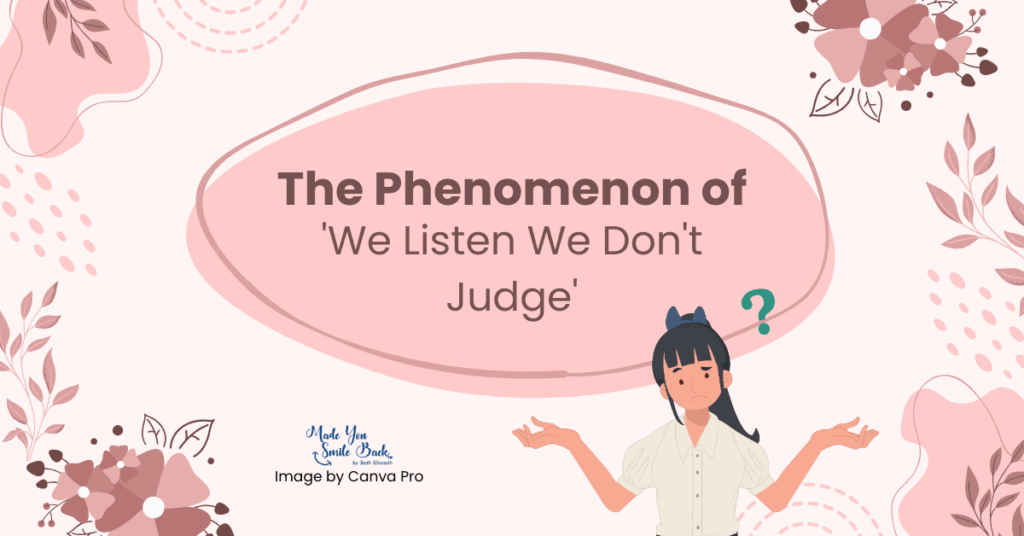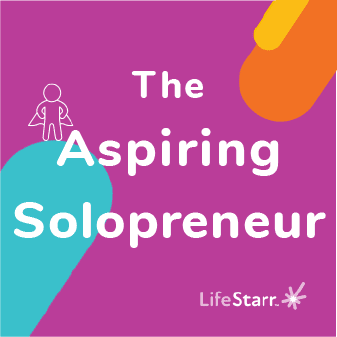We Listen We Don’t Judge: Supporting Others with Compassionate Care
We Listen We Don’t Judge: Supporting Others with Compassionate Care
Have you seen the latest trend on TikTok? People are sitting down with friends or family and sharing secrets. After each revelation, everyone says “We listen, we don’t judge.”
This viral challenge started in South Africa and spread to the US in late 2024.
The “We Listen, We Don’t Judge” trend creates a safe space for people to open up about their quirks and secrets without fear of criticism.
It’s become a way for couples, families, and friends to bond and learn new things about each other. Some confessions are funny, while others are more serious.
You might wonder if it’s a good idea to share personal info online. While the trend can build trust, it’s smart to think carefully about what you reveal.
VERY IMPORTANT: Remember, once something is on the internet, it’s hard to take back. If you want to try this trend, consider doing it privately with ONLY people you trust.

The Phenomenon of ‘We Listen We Don’t Judge’
The ‘We Listen We Don’t Judge’ trend took social media by storm, sparking conversations about honesty and trust. This viral challenge revealed how people react to unexpected confessions from loved ones.
Origin and Spread of the Trend
The ‘We Listen We Don’t Judge’ challenge started in South Africa in 2024. It quickly spread to other countries, gaining major traction in the United States by November 2024.
On TikTok, the trend exploded in popularity. Couples, friends, and family members filmed themselves taking turns sharing secrets. After each revelation, the group would repeat “We listen, we don’t judge.”
Janie Ippolito was one of many participants who helped the trend go viral. Her video with her husband Dave gained millions of views on TikTok.
Psychology Behind Non-Judgmental Listening
The trend taps into our desire for acceptance and understanding. When you share a secret, you’re vulnerable. Hearing “we don’t judge” can be comforting.
Non-judgmental listening builds trust in Relationships. It creates a safe space for open communication. This can lead to stronger bonds between people.
But some experts caution against the trend. They argue it’s better to be honest from the start rather than keeping secrets. The challenge might encourage unhealthy behavior in some cases.

Cultural Impact and Social Media Dynamics
The “We Listen, We Don’t Judge” trend has shaped online interactions and influenced how people connect. It highlights the power of relatable content and influencer involvement in spreading social media movements.
Engagement Through Relatability on Platforms
Relatable content drives engagement on social media platforms. The “We Listen, We Don’t Judge” trend taps into this by featuring everyday situations people face.
On Instagram, users share short videos responding to hypothetical scenarios. This format lets you see others’ reactions, making you feel less alone in your experiences.
The trend’s success comes from its simplicity. You can easily participate by filming your own response. This low barrier to entry helps the trend spread quickly.
Role of Influencers in Trend Propagation
Influencers play a key part in making trends go viral. For the “We Listen, We Don’t Judge” trend, popular creators amplify its reach.
When an influencer like Maria Doss participates, their large follower base sees the content. This exposure can spark thousands of new participants.
Influencers often add their own twist to trends. This keeps the content fresh and interesting as it spreads. Their creative takes inspire you to join in and make the trend your own.
On TikTok, the trend’s hashtag has millions of views. This shows how quickly influencer participation can turn a simple idea into a viral phenomenon.

Communication in Relationships
Good communication is key to healthy relationships. It helps build trust and understanding between partners.
The Importance of Non-Judgmental Communication
When you talk with your partner, try not to judge what they say. Listen with an open mind. This allows them to share freely without fear.
Non-judgmental communication helps you and your partner feel safe to be honest. It creates a space where you can both express your true thoughts and feelings.
Avoid criticism or blame. Instead, focus on understanding your partner’s point of view. This approach can lead to deeper connections and fewer arguments.
Remember, your goal is to hear and understand, not to prove a point. By setting aside judgment, you make room for empathy and compassion in your relationship.
Developing Trust Through Active Listening
Active listening is a powerful tool for building trust. When your partner speaks, give them your full attention. Put away your phone and turn off the TV.
Show you’re listening by nodding or saying “I see” or “go on.” This encourages your partner to share more. After they finish, repeat back what you heard to make sure you understood correctly.
Ask questions to learn more about your partner’s thoughts and feelings. This shows you care and want to understand them better.
Practice patience. Don’t interrupt or rush to give advice. Sometimes, your partner just needs to be heard. By listening well, you create a strong foundation of trust in your relationship.

Revelations and Confessions
The “We Listen We Don’t Judge” trend has sparked a wave of candid disclosures online. People are sharing hidden truths and quirky habits, creating moments of laughter and deeper connections.
Exploring the Impact of Sharing Secrets
Sharing secrets can be freeing. When you open up, you might feel a weight lift off your shoulders. This viral trend gives you a chance to reveal things you’ve kept hidden.
Some confessions are silly, like weird food combos you love. Others are more serious, touching on fears or regrets. Either way, speaking your truth can help you feel understood.
Couples often use this trend to share things with each other. It can bring you closer as you learn new things about your partner. But remember, just because someone says they won’t judge doesn’t mean they won’t have feelings about what you share.
Humor and Connection Through Confession Sharing
Many confessions in this trend are funny. People admit to odd habits or embarrassing moments. This shared laughter can help you bond with others.
You might find out you’re not alone in your quirks. Maybe you Sleep with socks on or talk to your plants. Hearing others admit similar things can make you feel less weird.
Some highlights from the trend include:
- Eating cereal with water instead of milk
- Pretending to be on the phone to avoid talking to people
- Naming household objects
These light-hearted admissions can spark fun conversations. They remind you that everyone has their own little secrets and odd behaviors.

Navigating Judgment
Judgment can harm relationships and hinder open communication. Learning to keep an open mind helps foster understanding and connection.
Consequences of Judgment in Personal Interactions
When you judge others, it creates barriers. People may feel attacked or misunderstood. This can lead to defensiveness and closed-off behavior.
Judgment often stems from assumptions. You might think you know someone’s motives, but you rarely have the full picture.
Harsh judgments can damage trust in relationships. Friends, family, or partners may hesitate to share their true thoughts and feelings with you.
Over time, judgment can isolate you. Others may avoid confiding in you or seeking your support.
Strategies for Maintaining an Open Mind
Practice active listening. Focus on understanding the other person’s perspective without interrupting or planning your response.
Ask questions to gain Clarity. This shows you’re interested in learning more rather than jumping to conclusions.
Challenge your initial reactions. Pause before responding and consider alternative explanations for someone’s behavior.
Cultivate empathy. Try to put yourself in the other person’s shoes. What might they be feeling or experiencing?
Recognize your own biases. We all have preconceived notions. Being aware of yours can help you set them aside.
Embrace curiosity. Approach conversations with a genuine desire to learn and understand, rather than to prove a point or be right.

Trends and Society
Social media trends shape how people share and connect online. These viral phenomena often reflect deeper societal issues and cultural shifts.
Analyzing the Longevity of Social Trends
TikTok trends like “We Listen and We Don’t Judge” capture attention quickly but fade fast. You might see hundreds of couples repeating this phrase before sharing secrets.
The trend’s popularity shows people’s desire for open communication. It taps into the need for acceptance and understanding in relationships.
But how long do these trends last? Often just a few weeks. Their short life span reflects the fast-paced nature of social media. You see constant churn as users seek the next big thing.
Societal Realities Echoed in Viral Content
Viral trends often mirror real-world issues. The “We Listen” trend highlights communication challenges many face. It shows a craving for judgment-free spaces to be honest.
Other trends spotlight societal shifts. Videos of women in male-dominated fields challenge gender norms. You see female mechanics, construction workers, and pilots sharing their experiences.
These trends give voice to underrepresented groups. They create visibility and spark conversations about equity and inclusion.
Viral content can also influence consumer behavior. Trends like the “Pink Tote Lid” craze drive product demands and shape fashion choices.

Frequently Asked Questions
Non-judgmental listening plays a key role in effective communication and mental health support. It fosters trust, empathy, and understanding between people.
How can adopting a non-judgmental attitude benefit communication?
When you adopt a non-judgmental attitude, you create a safe space for open dialogue. This approach encourages the speaker to share more freely without fear of criticism.
You’ll likely notice improved relationships and deeper connections with others. People tend to feel more comfortable expressing themselves when they don’t feel judged.
In what ways does active listening without judgment impact mental health support?
Active, non-judgmental listening is crucial in Mental Health support. It helps people feel heard and validated, which can reduce feelings of isolation and Anxiety.
Listening without judgment also allows individuals to explore their thoughts and emotions more deeply. This can lead to greater self-awareness and personal Growth.
What strategies can be employed to avoid judgment while listening?
Focus on the speaker’s words and emotions rather than forming opinions. Practice mindfulness to stay present in the conversation.
Try to suspend your own beliefs and experiences temporarily. This allows you to truly hear the other person’s perspective without comparing it to your own.
Why is it important to withhold judgment when someone is sharing personal experiences?
Withholding judgment shows respect for the speaker’s unique experiences. It acknowledges that you may not fully understand their situation.
By avoiding judgment, you create an environment where people feel safe to be vulnerable. This can lead to more honest and meaningful conversations.
What are the key characteristics of a non-judgmental listener?
A non-judgmental listener shows empathy and maintains an open mind. They avoid interrupting or offering unsolicited advice.
These listeners use supportive body language and ask clarifying questions. They focus on understanding rather than evaluating the speaker’s words.
How does the principle of not judging complement the concept of empathy?
Not judging allows you to truly put yourself in the speaker’s shoes. It helps you understand their feelings and perspectives without bias.
When you combine non-judgment with empathy, you create a powerful foundation for emotional support. This approach fosters deeper connections and mutual understanding.

In Conclusion – Final Last Words
“We Listen We Don’t Judge” is a popular TikTok trend that emerged in 2024. It involves people sharing secrets with friends, partners, or family members.
The trend starts with participants saying “We listen and we don’t judge” together. Then, they take turns revealing personal information.
This challenge aims to promote honesty and openness in relationships.
Some benefits of the trend include:
- Increased trust
- Better communication
- Deeper connections
But it also has potential drawbacks:
- Shock or hurt feelings
- Damaged relationships
- Privacy concerns
You should think carefully before participating in this trend. Consider the impact your revelations might have on your relationships.
If you choose to take part, remember to be respectful and sensitive to others’ feelings. The goal is to foster understanding, not to cause harm or judgment.
The post We Listen We Don’t Judge: Supporting Others with Compassionate Care appeared first on Made You Smile Back.
























